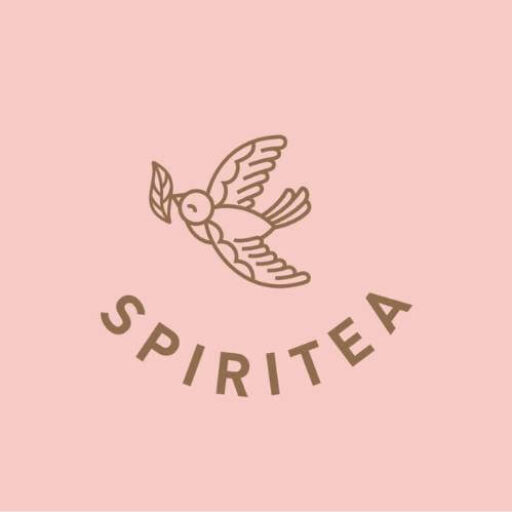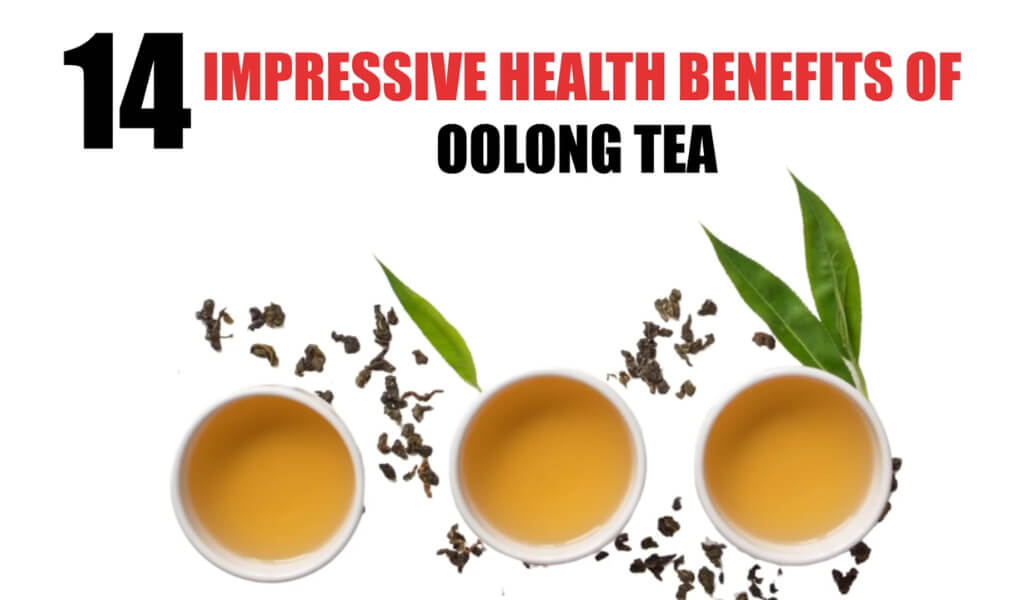I have always been fascinated by the Oolong tea benefits and side effects.
Over the years, I’ve discovered that it not only brings warmth to your day but also packs a punch regarding Oolong tea health benefits. However, as with most things, it’s essential to understand the potential side effects too.
Quotes of tea with You
“There is something in the nature of tea that leads us into a world of quiet contemplation of life.”
– Lin Yutang, The Importance of Living
Nutrients in Oolong tea
What is Oolong tea? Did you know that this delightful tea variant isn’t just a warm and comforting beverage but a veritable repository of health-enhancing nutrients?
A wealth of antioxidants, multivitamins, and essential minerals are present in every serving, with polyphenols – powerful health-boosting substances – being the stand-out constituents for their huge health perks. It’s akin to a fully loaded health food store for your body!
Here’s an interesting tidbit that might catch you off guard: Oolong tea boasts fluoride concentrations that mirror those your dental professional would endorse for preserving a radiant, Hollywood-worthy smile. This tea variant could become your clandestine ally against tooth decay, tooth loss, and oral malignancies.
But the health benefits of Oolong tea extend beyond this! This complex brew also serves up a hearty dose of manganese, potassium, and magnesium – essential minerals your bodily systems require.
To add the cherry, Oolong tea also includes niacin and sodium, completing this remarkable tea’s impressive roster of health-beneficial elements.
Oolong tea benefits
So, is Oolong tea good for you? And what are the benefits of Oolong tea? No look further! Here are the main benefits of the kind of tea you need to consider:
| Benefit | Description |
| Diabetes Protection |
Oolong tea’s polyphenols may help regulate blood sugar levels, potentially reducing risk of type 2 diabetes.
|
| Heart Health |
Antioxidants in Oolong tea may lower blood pressure, cholesterol, and heart disease risk.
|
| Weight Loss Support |
Oolong tea’s caffeine and polyphenols may aid weight loss efforts by increasing calorie expenditure.
|
|
Caffeine and theanine in Oolong tea may positively impact mood, attention, and cognitive function.
|
|
| Cancer Prevention |
Oolong tea’s antioxidants might have cancer-fighting properties, similar to green and black teas.
|
| Bone & Dental Health |
Regular Oolong tea consumption may improve bone density and dental health, reducing plaque buildup.
|
| Oolong tea could enhance skin tone, reduce signs of aging, and potentially help manage eczema. | |
| Blood Pressure Reduction | GABA-enriched Oolong tea may significantly lower high blood pressure. |
| Improved Sleep | GABA and L-theanine in Oolong tea may enhance sleep quality and reduce sleep latency. |
| Anti-Hyperglycemic Effect | Oolong tea’s polyphenols may help manage blood sugar levels by suppressing the α–amylase enzyme. |
| Gut Microbiome Support |
Oolong tea, brewed at higher temperatures, may improve gut bacterial balance.
|
| Vascular Inflammation Reduction | Oolong tea consumption might combat vascular inflammation, benefiting heart health. |
| Cholesterol Level Improvement | Drinking Oolong tea may reduce LDL cholesterol levels, decreasing heart disease and diabetes risks. |
| Increased Alertness | Oolong tea contains caffeine, providing alertness, though amounts may vary. |
Oolong tea may help protect against diabetes
The antioxidant polyphenols found in Oolong tea could potentially assist in maintaining balanced blood sugar levels and reducing the probability of type 2 diabetes onset. Nevertheless, the data on this subject is inconclusive, and further investigation is warranted.
We all appreciate a delightful cup of tea, don’t we? However, were you aware that this simple infusion can be a potent weapon in the fight against diabetes? That’s correct! Tea has been recognized for its potential to address diabetes and its associated challenges, potentially by mitigating insulin resistance and reducing inflammation, among other factors.
Excitingly, some scientific findings from 2021 and a 2019 review suggest that regular tea drinkers might manage their blood sugar better, thereby potentially reducing the risk of developing type 2 diabetes. Isn’t that amazing?
However, the spotlight tends to shine more on green and black tea, leaving our beloved Oolong tea in the shadows regarding research.
But don’t lose heart! There is a glimmer of hope with an older study hinting that Oolong tea might be successful in reducing plasma glucose levels in patients with type 2 diabetes.
Although, I must mention not all studies sing the same tune. A 2011 research involving roughly 5,000 Japanese men concluded that the best oolong tea consumption could potentially be a risk factor for the onset of the disease. So, while the verdict on Oolong tea’s precise role in managing diabetes isn’t clear yet, it’s a fascinating area to watch!
Oolong tea may improve heart health
Oolong tea might assist some individuals in reducing heart disease, stroke, and high blood pressure risks, but additional studies are required for confirmation.
Imagine enjoying a daily tea ritual that also doubles as a heart-healthy practice. That’s right! The antioxidants in tea, consumed regularly, are quite the health warriors, striving to keep our hearts in good shape.
Evidence? Multiple studies involving regular tea drinkers have revealed impressive results, like lower blood pressure, cholesterol levels, and a decreased heart disease risk. To illustrate, a comprehensive study conducted in 2003 demonstrated that individuals who consumed more than six cups of tea daily had notably lower rates of coronary heart disease than those who did not.
A study involving over 76,000 Japanese adults showed that men drinking 8 ounces (240 mL) or more of oolong tea daily had a whopping 61% lower risk of heart disease. It’s hard not to be amazed, right?
Moreover, a study from China discovered that adults who relished 1 to 2 cups daily of green or oolong tea significantly reduced their risk of stroke.
However, does oolong tea have caffeine? Let’s not forget that oolong tea does contain caffeine, which may slightly raise blood pressure or hypertension in some individuals. The evidence is a see-saw, with inconsistent results in studies examining the link between blood pressure and caffeine.
So, although there’s still uncertainty surrounding this matter, it’s important to highlight that the caffeine levels in an 8-ounce (240 mL) serving of oolong tea are approximately one-fourth of what you’d find in an equivalent amount of coffee. Any potential adverse impact on high blood pressure is expected to be minimal.
Oolong tea benefits weight loss
The caffeine and polyphenols present in oolong tea may enhance enzyme inhibition and boost daily calorie expenditure, potentially supporting weight loss efforts.
We’ve heard whispers about the relationship between sipping tea and shedding pounds for years. A wealth of studies suggest that tea’s bioactive compounds could aid in weight loss and prevent obesity.
Initially, we thought it was the antioxidant activity of tea doing all the heavy lifting in reducing body fat. However, the latest buzz in the scientific community suggests that tea’s ability to boost enzyme inhibition and interact with our gut microbiota might be the real secret to its weight loss prowess.
Now, let’s talk about Oolong tea taste. An intriguing animal study found that oolong extracts helped increase fat oxidation, essentially contributing to a direct reduction in body fat.
But when we switch our focus to human studies, the evidence is sparse. Only one smaller, older study linked oolong tea to increased energy expenditure in adults – the calories our body burns at rest – but not fat oxidation. We’re keen to see more research in this area.
Nonetheless, it’s important to remember that while there may be connections between tea’s antioxidant properties, caffeine content, and ability to curb appetite, just drinking a few cups every day is not a guaranteed remedy for weight loss.
Many other factors, like underlying health conditions and lifestyle habits, play significant roles in weight loss. Also, remember that the safe consumption limit for tea can vary from person to person.
Oolong tea may improve brain function.
Teas, including oolong tea, contain caffeine, antioxidants, and theanine, which have the potential to impact brain function and mood positively.
Recent reviews indicate that consuming tea can have positive effects on brain function, memory, and potential protection against age-related decline. Tea contains several components that may specifically benefit brain health.
One such component is caffeine, which can enhance the release of norepinephrine and dopamine. These neurotransmitters are believed to impact mood, attention, and overall brain function positively.
Additionally, theanine, an amino acid found in tea, has been shown to improve attention and alleviate anxiety. A review conducted in 2014 revealed that tea containing both caffeine and theanine led to increased alertness and improved attention within the first few hours after consumption.
While limited research has focused specifically on oolong tea, a study from 2008 discovered that regular consumption of tea, particularly black and oolong varieties, was associated with a lower risk of cognitive impairment and decline.
Furthermore, a smaller study conducted in 2010 demonstrated a link between regular green, black, or oolong tea consumption and improved cognition, memory, executive function, and information processing speed in older Chinese adults.
Read More: When not to drink oolong tea?
Oolong tea benefits for liver and others by relieving cancers
Like green and black tea, oolong tea also possesses potential protective properties against cancer.
Scientists have been investigating the cancer-fighting potential of black, green, and oolong teas in the ongoing effort to combat cancer. These teas are rich in antioxidants that are thought to have the ability to reduce the risk of cancer by inhibiting detrimental cell mutations.
Tea polyphenols, present in these teas, may also play a role in slowing down the division of cancer cells, a promising aspect in cancer prevention.
Numerous studies have delved into the relationship between tea consumption and the reduced risk of specific cancers, such as lung, esophageal, pancreatic, liver, and colorectal. While some evidence suggests a lowered cancer risk, it’s important to note that the statistical significance of these findings may vary across studies.
Although most research has primarily focused on the effects of green or black teas, with green tea showing the most promising results, it’s worth mentioning that oolong tea falls between the green and black varieties. Hence, similar benefits could be expected from oolong tea. However, more specific research on oolong tea is needed to provide further insights into its cancer-fighting properties.
As the search for effective cancer prevention methods persists, there is an ongoing investigation into the potential advantages of consuming oolong tea before bedtime. Oolong tea is enriched with GABA (Gamma-aminobutyric acid) and L-theanine, both of which contribute to soothing and tranquillizing brain activity, thereby facilitating better sleep.
Oolong tea helps promote tooth and bone strength
Consuming oolong tea may contribute to improved bone mineral density, the strengthening of tooth enamel and the reduction of dental plaque formation.
When it comes to keeping your teeth and bones in top shape, oolong tea is a potential ally, thanks to its powerful antioxidants.
A study discovered that individuals who drank black, green, or oolong tea daily over a decade enjoyed a remarkable 2% increase in overall bone mineral density. That’s certainly something to raise a tea-filled cup to!
Several other reviews also corroborate these results, underscoring the beneficial influence of tea consumption on bone mineral density. Enhancing bone mineral density could potentially lower the chances of fractures.
Nevertheless, it’s worth mentioning that an investigation into the direct connection between oolong tea and fractures has not been fully conducted. Subsequent research could provide further insight into this intriguing aspect.
Moving on to dental health, research has unveiled a promising connection between tea consumption and improved oral well-being. It turns out that drinking tea, including oolong tea, is associated with decreased plaque buildup and a lower likelihood of gingivitis. These findings translate to healthier teeth, which we can all smile about!
So, as you sip on your cup of delightful oolong tea, remember that it’s not just a delightful beverage but a potential supporter of strong teeth and bones, backed by scientific insights.
Oolong tea benefits for skin to relieve eczema
So, what are the oolong tea benefits skin? Oolong tea offers several advantages for the skin, such as enhancing skin tone and brightness, diminishing dark spots and signs of aging, reducing wrinkles and fine lines, improving skin texture, and providing protection against sun damage.
In a notable study from 2001, researchers delved into the impact of oolong tea on eczema management among 118 individuals with severe cases. As part of their routine treatment, participants were requested to consume 33 ounces (1 liter) of oolong tea daily.
Remarkably, within just one month, significant improvement ranging from “marked to moderate” was observed in their conditions. Encouragingly, signs of improvement began surfacing as early as 1 to 2 weeks into the study.
What’s truly noteworthy is that the positive changes endured and remained evident in 54% of the participants after 5 months.
It’s important to note the study’s specific parameters and the number of individuals involved when interpreting the results. Nevertheless, these findings provide a glimmer of hope and contribute to our understanding of how oolong tea could aid in managing eczema.
As we await further investigations, it’s exciting to see how the world of tea holds the potential to offer relief to individuals struggling with eczema.
Lowering blood pressure
According to studies, GABA tea, an innovative variant from Japan containing a high concentration of the neurotransmitter gamma-aminobutyric acid, has significantly reduced high blood pressure.
Approximately 35 years ago, a group of creative Japanese scientists introduced a distinctive type of tea known as GABA tea. This special tea is carefully made from oolong leaves that have undergone oxidation and contain a substantial amount of gamma-aminobutyric acid (GABA). So, the concentration is notably greater than you can typically find in other types of tea!
But why does this matter? GABA is an important compound, a neurotransmitter that our body naturally produces. Researchers have dug deep into the potential health benefits of this tea and found some impressive results.
Here’s a big one: GABA tea has been shown in studies to lower high blood pressure. The figures are impressive, with a 14-17% reduction rate compared to control groups.
Improving sleep
Research suggests that GABA and L-theanine, naturally occurring compounds found in oolong tea and higher amounts in GABA-enriched tea, can improve sleep quality and reduce sleep latency.
Hey there, did you know there’s an interesting connection between a cozy cup of oolong tea, a good night’s sleep, and two vital compounds – GABA and L-theanine? Research has shown that when combined, these two naturally occurring ingredients can lead to a longer, sounder sleep and reduce the time it takes to drift off – something we like to call sleep latency.
Your typical oolong tea already contains a small amount of these advantageous elements, approximately 0.25 mg of GABA in every 200 ml serving. However, the specially formulated GABA-enriched tea takes it to the next level, offering an impressive 2 mg of GABA per 200 ml serving!
Anti-hyperglycemic effect
Oolong tea, rich in polyphenols, may potentially help manage type 2 diabetes or maintain healthy blood sugar levels by suppressing the action of the digestive enzyme α–amylase, which, when overactive, can elevate blood sugar levels.
The secret lies in the rich presence of polyphenols, a type of beneficial antioxidant, in oolong tea.
These polyphenols might play a vital role in suppressing the action of a certain digestive enzyme known as α–amylase. Why does this matter, you ask? Well, α–amylase is a little enzyme with a big impact. When it gets overly active, it can lead to high blood sugar levels – a major concern for individuals with type 2 diabetes.
So, for those managing type 2 diabetes or aiming for healthy blood sugar levels, a comforting cup of oolong tea might be your new go-to.
Improving gut microbiome
Did you know an imbalance in gut bacteria can trigger many health issues, ranging from inflammatory bowel diseases and allergies to metabolic disorders and liver disease?
It’s tricky, especially if you’re on a high-fat diet. But don’t worry; oolong tea might just be your health ally in this fight. But, how to make oolong tea can affect its effect on the microbiome.
In detail, this soothing type could help improve your gut’s bacterial balance at higher brewing temperatures, thus supporting your overall health. So, oolong tea isn’t just a tasty drink; it could also be your gut’s best friend.
Decreasing vascular inflammation
Oolong tea, renowned for its unique flavor, could also offer significant benefits for heart health.
This calming beverage could potentially be beneficial in addressing vascular inflammation, especially for individuals who consume a diet high in red meat. Consistently incorporating oolong tea into your routine can decrease the likelihood of heart-related problems by diminishing inflammation.
Reducing cholesterol levels
According to clinical trials, regularly sipping oolong tea could affect your cholesterol levels.
One study showed a 6.69% decrease in LDL, often called ‘bad cholesterol’, in individuals drinking 600ml of oolong tea daily. This could lower the risk of dyslipidemia and heart disease.
Moreover, a separate trial noted reduced levels of LDL and hemoglobin A1c – a marker linked to type 2 diabetes risk – in those enjoying 1000ml of oolong tea per day.
Increases alertness
Caffeine content, oolong tea shares similarities with other real teas. However, the exact amount can vary.
Research suggests that oolong tea, specifically Ti Kwan Yin, contains less caffeine than white tea, and only about 26% of the caffeine is found in pu’erh tea.
Interestingly, a study examining various commercially available tea samples revealed that oolong tea could sometimes contain double the caffeine content of popular teas like Earl Grey, Assam, and Breakfast.
But here’s an intriguing twist: teas with higher caffeine levels also tend to have more L-theanine, an amino acid known for its calming properties. The result? Increased alertness without the jitters. So, enjoy a cup of oolong tea for a nice energy boost without the unwanted side effects.
Safety Profile and oolong tea side effects
Oolong tea is typically regarded as a safe beverage. But, Oolong tea can cause certain side effects, including increased heart rate, palpitations, sleeplessness, anxiety, trembling, headaches, stomach discomfort, and digestive issues such as nausea, vomiting, and diarrhea. Keep reading for more details!
Caffeine Content
One vital point to keep in mind is that oolong tea includes caffeine. Overconsumption of caffeine can result in discomforting symptoms such as heightened anxiety, severe headaches, sleep disturbances, arrhythmia, and in certain scenarios, elevated blood pressure.
Polyphenol Antioxidants
While oolong tea is abundant in polyphenol antioxidants, overconsumption of these antioxidants might lead to adverse effects by functioning as pro-oxidants. This adverse scenario is more probable with polyphenol supplements than regular tea consumption.
Flavonoid Compounds
Another aspect to consider is that the flavonoids found in tea could interfere with the body’s iron balance, complicating the iron absorption process. Nonetheless, more scientific exploration is needed to understand the precise processes and the impact of flavonoid intake on iron equilibrium.
Regarding caffeine intake, the USDA and EFSA consider up to 400 mg of caffeine per day safe. For oolong tea lovers, this equals about 48–80 ounces (1.4–2.4 liters) per day, which is roughly 6–10 typical 8-ounce (240 mL) servings.
Crucially, expectant mothers are recommended to limit their caffeine consumption to a maximum of 200 mg daily, translating to approximately 3–5 servings of oolong tea.
Last but not least, with a high flavonoid content, oolong tea side effects kidney is available on children.
In Conclusion
Oolong tea offers a multitude of potential benefits for overall health and well-being.
From promoting heart health and aiding in weight management to supporting digestion and providing antioxidant properties, oolong tea offers a range of potential advantages for overall well-being.
With its unique flavors, oolong tea is a delightful beverage that can be enjoyed throughout the day.
Please share this valuable information with others who may benefit from the wonders of oolong tea.
Thank you for joining me on this journey of exploring the incredible oolong tea benefits. Spiritea Drinks are not responsible for the above statements.
FAQs
How does oolong tea promote heart health?
Oolong tea has been associated with potential cardiovascular benefits. It may help reduce the risk of heart disease by lowering LDL cholesterol levels, often called “bad” cholesterol.
Can oolong tea be consumed cold or iced?
Absolutely! Oolong tea is incredibly versatile and can be enjoyed both hot and cold. It can be brewed and chilled for a refreshing iced tea option, allowing you to savor its delightful flavors and potential health benefits even on warm days.
Is oolong tea suitable for individuals with allergies?
Oolong tea is generally safe for individuals with common allergies. However, it’s important to be aware of any specific allergens you may have and read ingredient labels carefully if consuming flavored or blended oolong teas.
Does oolong tea have any impact on the immune system?
The polyphenols found in oolong tea have been associated with potential immune-boosting properties. Regular consumption of oolong tea may help support a healthy immune system, making the body more resilient against common illnesses.
I’m Shanna, creator of Spiritea Drinks. I’m all about teaching people to grow their own food, tea, cook what they harvest, and eat with the seasons.









